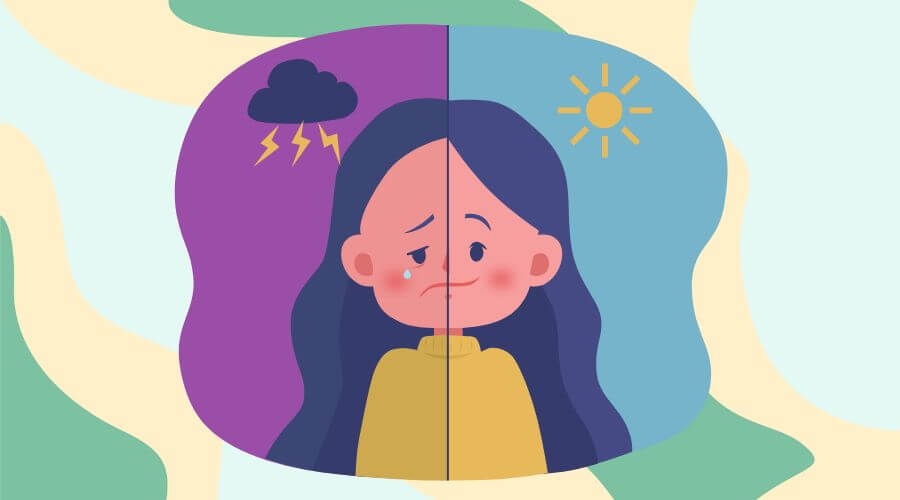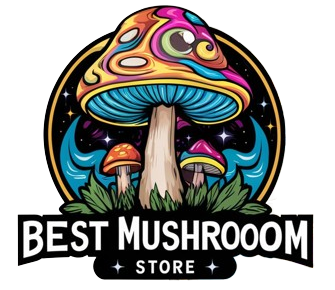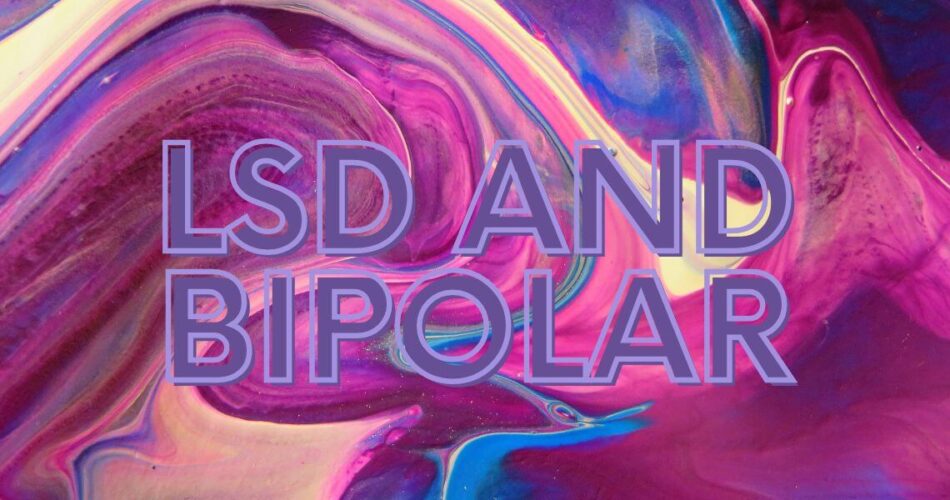LSD, ketamine and Ayahuasca are all thought to improve mental health and have a potential for legitimate psychiatric uses. But what is the relationship between LSD and bipolar disorder? Can taking a psychedelic induce psychotic symptoms or worsen mood swings? Find out.
TL;DR
- LSD and other psychedelics can be dangerous for those with existing mental health disorders, including bipolar disorder.
- Taking psychedelic drugs could worsen mood fluctuations associated with bipolar disorder and increase the risk of psychosis or suicidal ideation.
- It is not recommended to combine LSD and bipolar medication due to safety concerns; any risks should be discussed with a healthcare provider first.
How Psychedelic Substances Affect Bipolar Disorder
Using psychedelic substances can be dangerous for those with existing mental health disorders, including bipolar disorder. The unpredictable and intense effects that psychedelics bring may cause a worsening of existing mood fluctuations associated with bipolar disorder. This could include heightened episodes of depression, mania, irritability, hyperactivity, impulsivity, and paranoia.
As such, it is strongly advised that those living with bipolar disorder avoid the use of psychedelics, as they could trigger further symptoms and make it more difficult to cope with the disorder. The relationship between LSD and bipolar disorder isn’t well-studied, and more clinical trials need to be done to determine the safety of its use.
Editor’s Note
While the relationship between LSD and bipolar disorder remains shrouded in mystery, it is imperative to remember that any course of self-treatment involving psychedelics should only be pursued with direction and guidance from a healthcare provider. The unpredictable nature of these substances lends them an extra layer of caution which must always be taken into consideration before their usage can even begin to be discussed.
The Relationship Between LSD and Bipolar Disorder
LSD can cause a host of unexpected consequences, making it an ill-advised choice for those with bipolar disorder. Given the potential risks involved, medical professionals strongly discourage its use in this group of people. Both LSD and bipolar disorder have the potential to cause a person to experience extreme highs and lows, so the drug can exacerbate manic or depressive symptoms.
This could lead to an increased risk of psychosis or even the potential for suicidal ideation, both of which may be more dangerous for someone with bipolar disorder. LSD could have harmful interactions with medications intended to treat bipolar disorder, warning against any dangerous consequences. Although the effects of combining LSD and bipolar disorder remain largely a mystery, it’s probably best to play it safe and steer clear of any potential risks associated with this combination.
Can You Mix LSD and Bipolar Meds?
Combining bipolar medications and LSD can be a highly contentious practice, as there is potential for serious medical complications like seizures. For instance, fluoxetine (Prozac) has been known to weaken the psychedelic effects of lysergic acid diethylamide while also exacerbating its risk factors. Generally speaking, it’s best to avoid combining them unless instructed by your healthcare provider.
Lithium is especially dangerous when mixed with classic psychedelics like LSD and psilocybin. It’s used to treat manic episodes, but combined with drugs like psilocybin mushrooms, it can cause seizures. For those struggling with bipolar depression, it is wise to avoid any substances or activities that could disrupt mental equilibrium.
Psychedelics like LSD are not recommended for people with bipolar disorder, as they could potentially interfere with medication effectiveness while also introducing an array of psychological risks.
Considering the powerful combination of medications for bipolar disorder and LSD, it is essential to communicate with your healthcare provider about any potential risks or benefits associated. Doing so can be beneficial in helping you decide if this mixture is right for you.

Frequently Asked Questions
Is LSD a Trigger for Bipolar Disorder?
LSD can be dangerous and unpredictable for those living with bipolar disorder. For these individuals, it’s essential to consider the risks before taking this powerful psychedelic substance in order to avoid any potentially harmful consequences.
Can LSD Cause Long-Term Mental Health Issues?
Using LSD can cause long-term mental health issues, such as depression, anxiety, and paranoia. When using LSD, it’s vital to keep safety in mind; if any concerns arise, don’t hesitate to reach out for professional assistance.
What Are the Risks Associated With Using LSD?
The risks associated with using LSD include anxiety, panic attacks, psychosis, depression, and an increased risk of suicide. While LSD can have profound effects, it is important to be mindful of its potential risks before partaking. If you experience any unusual symptoms while under the influence, professional help should always be sought out.
Similar Posts:
- An Ultimate Guide to Magic Shrooms and Bipolar Disorder. All You Need to Know
- Psychedelics for Depression: All About Mental Health Treatment With Psychedelic Drugs
- Abilify and LSD: What Happens If You Take Them Together? Side Effects
- SSRI and Shrooms | Psilocybin Mushrooms With Antidepressants
- Shrooms and Lexapro (Psilocybin Versus Escitalopram)
- Discovering Shrooms for Anxiety. A Comprehensive Guide to Magical Mushrooms and Depression
- How Much LSD Is Too Much? Facts About LSD Overdose




